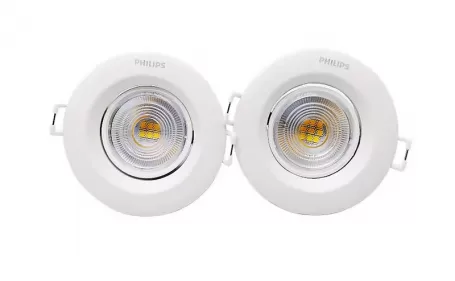The Ultimate Guide to Choosing LED Spotlights
In the ever-evolving landscape of lighting technology, LED spotlights have emerged as a popular and energy-efficient choice for various applications. Whether you're revamping your home's lighting scheme or enhancing the ambiance of a commercial space, selecting the right LED spotlight requires careful consideration of several factors. This comprehensive guide will walk you through the key aspects to help you make an informed decision.
1. Understanding Lumens and Brightness
When choosing an LED spotlight, the first consideration is brightness, measured in lumens. Determine the required lumens based on the intended use of the spotlight. For accent lighting, lower lumens may suffice, while task lighting may require a higher output. Understanding the correlation between lumens and brightness ensures that the spotlight meets your specific lighting needs.
2. Color Temperature Matters
LED spotlights come in various color temperatures, measured in Kelvins (K). Warm white (2700K-3000K) mimics traditional incandescent lighting, while cool white (4000K-5000K) provides a brighter, more vibrant illumination. Consider the atmosphere you want to create and the functionality of the space when selecting the color temperature.

3. Beam Angle for Precision
The beam angle determines the spread of light from the spotlight. A narrow beam angle (15-30 degrees) is ideal for accentuating specific objects or architectural features, while a wider angle (45 degrees and above) is suitable for general illumination. Assess the layout of the space to choose the beam angle that aligns with your lighting objectives.
4. Dimmability for Flexibility
Opt for dimmable LED spotlights to have control over the intensity of the light. Dimmable options offer versatility, allowing you to adjust the lighting to create different moods and save energy when full brightness is not required. Ensure compatibility with your existing dimming system for seamless integration.
Additional reading:Exploring the Benefits of LED Neon Flex for Lighting Applications
Are SMD LED lights more energy-efficient than traditional lighting?
What Are the Mini Projector Bulbs and How to Choose?
LED Tubes – The Ultimate Guide to Replacing Fluorescent ...
5. Energy Efficiency and Longevity
One of the key advantages of LED technology is its energy efficiency and long lifespan. Check the Energy Star rating and the estimated lifespan of the LED spotlight. Investing in energy-efficient options not only reduces electricity costs but also minimizes the frequency of replacements, making it a sustainable choice in the long run.
6. Consider the Fixture Design
The design of the spotlight fixture is essential for both aesthetics and functionality. Choose a design that complements the overall style of the space while ensuring that the spotlight can be easily adjusted for proper aiming and coverage.
7. Quality of Light and Color Rendering Index (CRI)
Evaluate the quality of light produced by the LED spotlight, considering the Color Rendering Index (CRI). A higher CRI indicates better color accuracy. For applications where color accuracy is crucial, such as retail or art displays, opt for spotlights with a CRI of 80 or higher.
Conclusion
Choosing the right LED spotlight involves a careful assessment of brightness, color temperature, beam angle, dimmability, energy efficiency, fixture design, and light quality. By considering these factors, you can tailor your selection to meet the specific lighting requirements of your space, whether it's for accentuating focal points, providing task lighting, or creating an inviting ambiance. With the right LED spotlight, you can illuminate your surroundings efficiently and stylishly while reaping the benefits of modern lighting technology.
Previous: What Are the Mini Projector Bulbs and How to Choose?
Next: Consumer Concerns Addressed: Shedding Light on Flood Lights
If you are interested in sending in a Guest Blogger Submission,welcome to write for us!




Comments
0